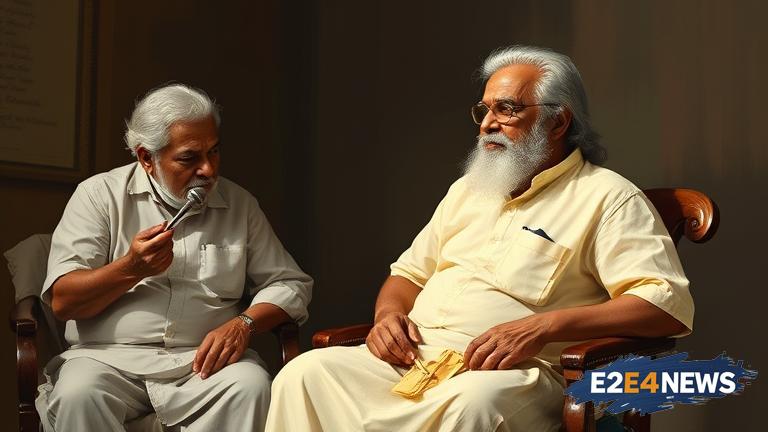The Communist Party of India (Marxist) (CPIM) has strongly criticized renowned filmmaker Adoor Gopalakrishnan’s recent statement that aspiring filmmakers from marginalized sections and women need intense training to succeed in the industry. The CPIM has termed this statement as elitist and discriminatory, arguing that it undermines the talents and capabilities of individuals from diverse backgrounds. The party has emphasized the importance of promoting inclusivity and diversity in the film industry, rather than perpetuating existing power structures. Adoor Gopalakrishnan, a veteran filmmaker from Kerala, had made these comments at a recent event, sparking widespread controversy and debate. The CPIM has argued that such statements can be detrimental to the growth and development of young filmmakers from marginalized communities, who already face numerous challenges and barriers in the industry. The party has called for a more nuanced and inclusive approach to filmmaking, one that recognizes and values the unique perspectives and experiences of individuals from diverse backgrounds. Furthermore, the CPIM has emphasized the need for greater representation and opportunities for women and marginalized groups in the film industry, both in front of and behind the camera. The party has also highlighted the importance of addressing the systemic inequalities and biases that exist in the industry, which can prevent talented individuals from achieving their full potential. In response to the controversy, Adoor Gopalakrishnan has clarified his statement, arguing that he was simply emphasizing the importance of proper training and mentorship for all aspiring filmmakers, regardless of their background. However, the CPIM has maintained that his comments were insensitive and misguided, and that they reflect a broader attitude of elitism and exclusivity in the film industry. The debate has sparked a wider conversation about the need for greater diversity and inclusivity in the film industry, with many calling for more opportunities and representation for women and marginalized groups. The CPIM has reiterated its commitment to promoting social justice and equality in all spheres of life, including the arts and culture. The party has also emphasized the importance of creating a more level playing field for all individuals, regardless of their background or identity. In conclusion, the CPIM’s criticism of Adoor Gopalakrishnan’s statement has highlighted the need for greater sensitivity and inclusivity in the film industry, and has sparked a important conversation about the importance of promoting diversity and representation in the arts. The controversy has also underscored the importance of addressing systemic inequalities and biases in the industry, and of creating a more just and equitable environment for all individuals to thrive. As the debate continues, it is clear that the issue of inclusivity and diversity in the film industry will remain a pressing concern for many years to come. The CPIM’s stance on this issue reflects its broader commitment to social justice and equality, and its determination to promote a more just and inclusive society for all. The party’s criticism of Adoor Gopalakrishnan’s statement has been widely reported in the media, with many outlets highlighting the controversy and the CPIM’s response. The issue has also been the subject of much discussion and debate on social media, with many individuals weighing in on the importance of inclusivity and diversity in the film industry. Overall, the controversy has highlighted the need for greater awareness and sensitivity on issues of diversity and inclusion, and has sparked a important conversation about the importance of promoting social justice and equality in all spheres of life.





